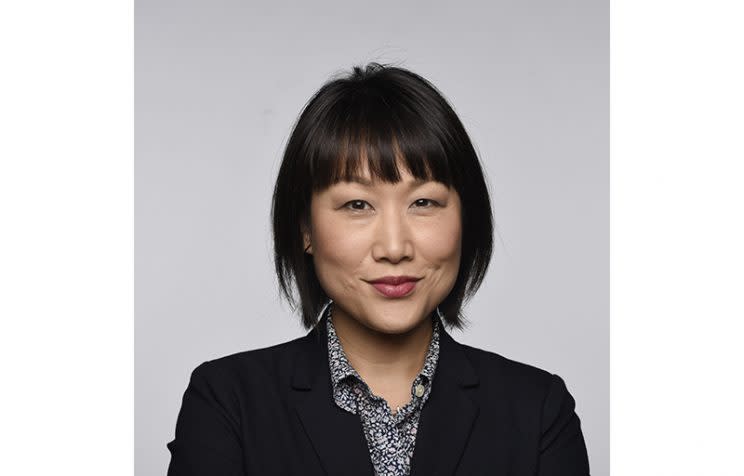Q&A: For Hannah Sung, definition of "Canadian identity" depends on who you ask, but the right conversations are happening

We shared the results of the Ipsos poll with Hannah Sung, co-host of Colour Code, a podcast about race by the Globe and Mail, and talked about her thoughts on the findings.
What does this poll tell us about the state of the Canadian public?
When we talk about Canadian values, it’s just two seemingly innocuous words. What does it mean that phrase? That’s just a pet peeve that I have that I think is probably pretty common because what are we really talking about when we ask people about Canadian values and security?
I think that what this does show is that Canadians are grappling with understanding what it means to be a pluralistic society, and that’s OK. I think in my lifetime, I’m not yet 40, and in my whole lifetime, Canada has always had multiculturalism and plurality and diversity as goals, as actual government policy. But if you think about how long it takes, or how many generations it takes to actually build a society’s mores and values, it actually does take a lot of time.
Any areas where the responses were unexpected?
I said I was not surprised by the results of this poll, but more than half of respondents say that Canadian values and security are threatened by new immigrants and refugees? More than half? That actually does surprise me.
But on another scale, if we think about how long the First Nations’ people have been here, they are the original multicultural society, 40 or 50 years isn’t long at all, especially when you look at the preceding 100 years of white supremacy that was entrenched as policy. From the beginning of ‘Canada’ as we know it, to the late 60s when multiculturalism became policy in Canada via the Canadian government, the act of keeping out people of other races, that was actual government policy. So it takes time for people and societies to settle into what they’re values are.
How much of our identity is positive stereotyping or wishful thinking?
There has been a lot of positive stereotyping of what it means to be Canadian, but I think that’s what’s so difficult right now for the emerging conversation. And it is percolating to become a mainstream conversation, which is really refreshing. And it’s that conversation around ‘who are we?’ and ‘what are we celebrating 150 years of Canada?’ Are we celebrating colonialism?
I think Canada 150 has been an incredible platform for dissenting voices and marginalized voices and I don’t know that that’s the way that Canada 150 was designed or conceived but I love that subversion of it. Whose voices get to tell the story of what Canada is and how Canada came to be? Because if we’re talking about Canada being 150 years, it’s clear who is getting that voice and who is getting that platform, and so that’s why I love that Canada 150 has been an opportunity for #resist150 or #Canada150plus. But I think not agreeing isn’t a negative thing. I do believe that multiple things can be true at the same time, that multiple histories should be seen properly in the light of day all at the same time. It’s actually a really great way to talk about this stuff and not just blindly shoot off a bunch of fireworks above Parliament Hill and say yay, you know? It’s this amazing, messy confluence of awareness, of social media, and it’s bringing together many different voices and I think that Canadians are definitely ready for this. And I think it can actually be really difficult and emotional, but I don’t think that’s a bad thing. I think that’s the path to reconciliation, I think it’s the path to learning.
What direction do you think the country is going in?
I’ve always believed in the forward energy and movement of younger generations and I think that we can definitely see that younger people in Canada might diverge a little bit from the older generations in terms of what they think, but that isn’t a bad thing. I think that young people are incredibly savvy. There is a deep savviness and intelligence in young people in terms of what it means to interact with media, or to have a public profile. I think that is so necessary for young people moving forward because our media landscape is just, the mainstream media has imploded and a new thing is emerging and young people need to be on top of that so that they can provide the leadership in terms of reflecting our society back to us.
How does this poll square with the image we Canadians have of ourselves?
I don’t know that there are many other countries in the world, especially now with so much political fear, where basically half of respondents would say ‘yes, our country is built by people who come here and many of them are refugees.’ I think that it’s human nature to be fearful of change and the way that Canadians push back on that kind of fear is actually a really positive thing. Let’s not feed ourselves a totally shallow idea of who we are as Canadians. I appreciate when we lift off the cover and ask these sorts of questions and realize there is some friction there in terms of who we’re supposed to be, who we’re supposed to be ‘letting in’, and who has actually built this country and what it means to be an immigrant, what it means to be a newcomer, what it means to be on stolen or borrowed or unceded territory.
This interview has been edited for clarity and length.




